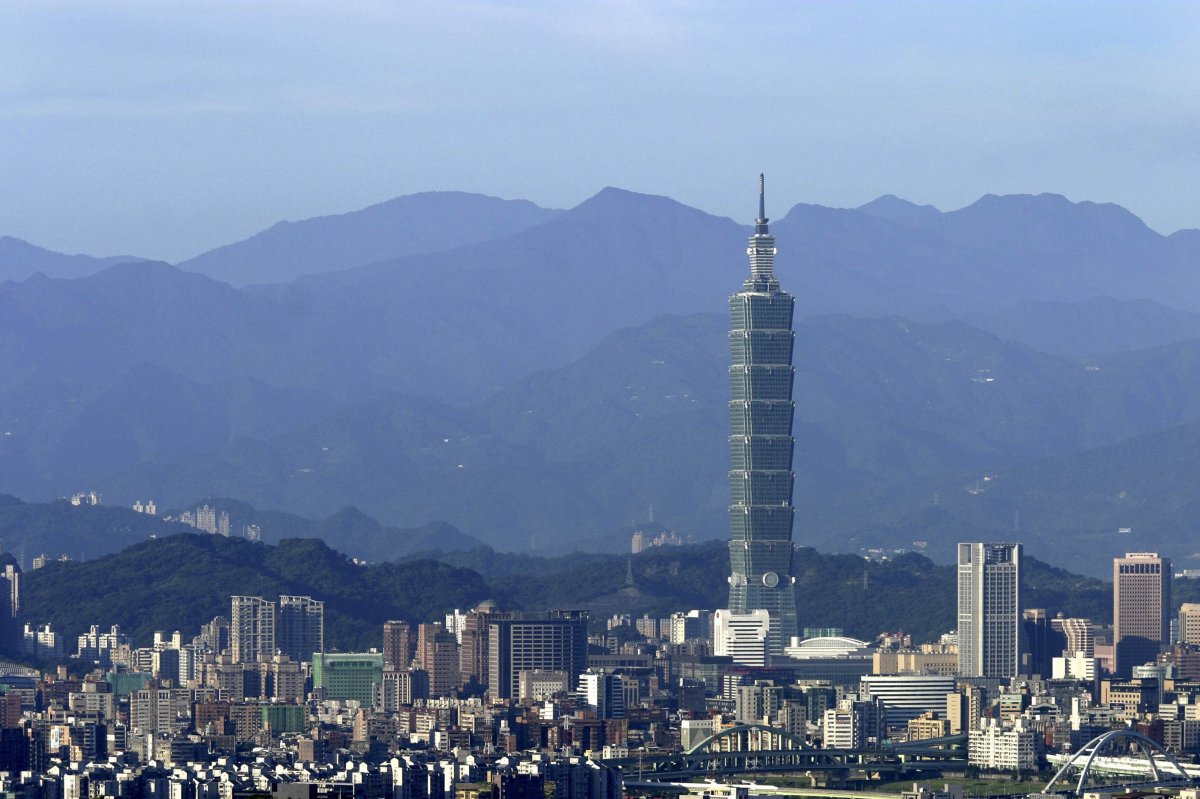A Chinese state-owned newspaper took a swipe at HBO's John Oliver on Tuesday after a viral Last Week Tonight episode on Taiwan appeared to overshadow an important speech by Xi Jinping about China's contributions to the world.
Communist Party mouthpiece Global Times dismissed the skit as amateurish, while mentions of the specific episode were almost non-existent on the country's highly regulated social media services. Among American and Taiwanese viewers, meanwhile, the production has won praise for its research and accuracy.
Oliver introduced the otherwise complex subject with a typical mixture of humor and seriousness. He touched briefly on the last 400 years of colonial history in Taiwan and concluded with a concise explanation of the uneasy status quo that has held for generations across the Taiwan Strait.
The People's Republic of China (PRC) claims the island is one of its provinces, but Taiwan says it's already a functionally independent country under the formal name the Republic of China (ROC). This ambitious existence has led to the need for careful rhetoric all around.
Wrestler-turned-actor John Cena's infamous apology for calling Taiwan a country made it into the episode, as did the United States' unofficial and sometimes awkward relationship with Taiwan, which it doesn't recognize as a state, but the defense of which it has supported since the end of World War II.
Despite the competing claims and the "fraught" relations between Beijing and Taipei, Oliver advocated for the island's future to be decided by its 23.5 million residents—instead of by China or even the U.S.
The latest episode of Last Week Tonight with John Oliver, which is broadcast on Sundays at 11 p.m. ET and can be seen here, happened to air around the same time as Chinese leader Xi was giving a speech in Beijing on Monday morning.
"The show was eye-catching enough especially when China on Monday commemorated the 50th anniversary of the restoration of the lawful seat of the People's Republic of China in the United Nations," the Global Times wrote the following day.
The state-owned tabloid was referencing the passage of UN General Assembly Resolution 2758 on October 25, 1971. It led to the UN admitting the PRC as the sole legitimate representative of China at the expense of ROC officials, but the resolution didn't mention Taiwan or attempt to determine its political status, which, in the eyes of the U.S. and others, has remained unresolved for more than seven decades.
Xi's remarks—seen as challenging renewed American efforts to help Taiwan return to the UN—appeared to have been outdone by Last Week Tonight's coinciding episode, suggested the Global Times, which accused Oliver of dodging facts and misleading the public.
The paper described the program as "a comedian show that sometimes covers politics," adding that it "didn't take the issue seriously." Last Week Tonight was "deeply influenced by the propaganda of Western media and politicians," it claimed.
"It's obvious to anyone with common sense that U.S. elites like John Oliver are playing dumb [and] now hyping the idea of Taiwan's so-called 'undetermined' status," said the Global Times.

Prominent American and Taiwanese scholars were involved in consultations with the show's production team. One of them was Taipei-based Brian Hioe, founding editor of Taiwan's New Bloom magazine.
He told Newsweek that, contrary to the propaganda outlet's claims, "the skit sought to be very nuanced regarding Taiwanese preference for the status quo," given the possibility of Chinese retaliation if the island were to declare de jure independence under another name.
"The Global Times comment does not have such nuance and instead draws on Chinese tropes regarding international agreements about Taiwan," Hioe said, noting that Last Week Tonight was "attentive to the intricacies" by interviewing experts.
"The irony is that I think this would have persisted in front-page headlines in Taiwan for longer had it been a news report in CNN or a major international outlet," he said of perceptions of the skit as a soft-power win for the country, citing the Taiwanese public's potential lack of awareness of Oliver's show.
He added: "However, arguably, this would have a larger effect than some front-page headlines because of the nuance, highly sympathetic take on Taiwan, and because of Oliver's audience of young liberals."
Last Week Tonight didn't return a request for comment in time for publication.
Applause for Oliver very much revolved around his central question of what Taiwan wants for itself.
"Maybe the best thing that we can do is move past talking about Taiwan like it's some kind of poker chip in a never-ending game of us versus them," Oliver said in the 20-minute episode.
Taiwan and its people "very much deserve the right to decide their own future in any way that they deem fit," he concluded.
Uncommon Knowledge
Newsweek is committed to challenging conventional wisdom and finding connections in the search for common ground.
Newsweek is committed to challenging conventional wisdom and finding connections in the search for common ground.
About the writer
John Feng is Newsweek's contributing editor for Asia based in Taichung, Taiwan. His focus is on East Asian politics. He ... Read more
To read how Newsweek uses AI as a newsroom tool, Click here.








